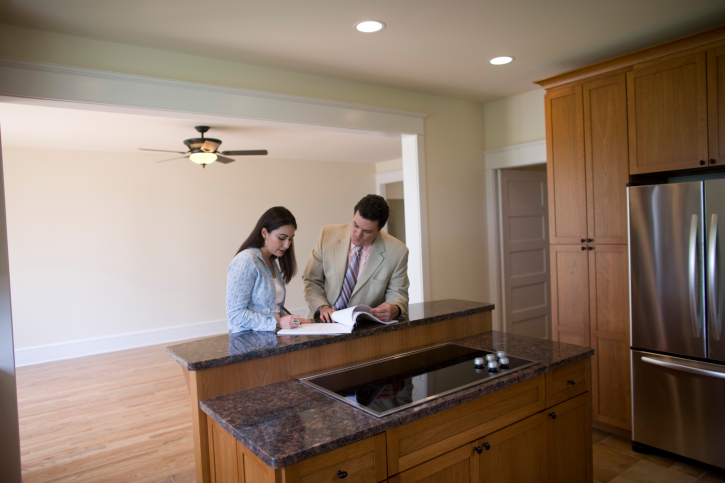 The era of social distancing has impacted everyone and this has left people wondering how they are going to maintain control over their sanity. The positive news is that social distancing doesn’t mean that people have to stay inside at all times.
The era of social distancing has impacted everyone and this has left people wondering how they are going to maintain control over their sanity. The positive news is that social distancing doesn’t mean that people have to stay inside at all times.
There are still ways to go outside and remain socially distant. Check out a few fun activities that people can do together while still social distancing.
Take A Trip To A Local State Park
One of the great ideas that people should try this summer involves taking a trip to a local state park. While a lot of businesses have remained closed, there are state parks that remain open. These parks often have dozens of miles of trails that people can hike and explore plants, animals, and the beauty of the great outdoors. While it is possible that other people will be on the trails, it isn’t hard for friends and family members to remain socially distant during a visit to a state park.
Explore The Neighborhood
Perhaps the local community park is packed. Instead, think about walking around the rest of the neighborhood. Chances are, there are spots right in the backyard that are brand new. There might even be a spot that has always been on the bucket list that has never been visited. This is an opportunity for people to open their eyes to the rest of the neighborhood while social distancing. Why not take this chance to say hello to someone new?
Pick Up A New Sport
While there are some sports that cannot be played while social distancing, there are some that can. Some of the great options include running, swimming, golf, tennis, and even frisbee golf. While social distancing can be hard for those who love to play team sports, there are still other sports that can be played even during the era of social distancing. It is important for people to take care of their physical health during this time. This is a great chance to pick up a new sport.
Activities For Social Distancing
These are a few of the top activities that people can do outside while still social distancing. Why not give them a try?
 Congratulations on moving into your new house! But hold on. Now that the house is yours, there are a few things you will want to do in order to make life in your new home more comfortable and secure. Before you plan your housewarming party, here is a list of the first things you should do after you move in.
Congratulations on moving into your new house! But hold on. Now that the house is yours, there are a few things you will want to do in order to make life in your new home more comfortable and secure. Before you plan your housewarming party, here is a list of the first things you should do after you move in. The purchase agreement is a vitally important document that outlines the provisions, terms and conditions for the transfer of property.
The purchase agreement is a vitally important document that outlines the provisions, terms and conditions for the transfer of property. Size matters when you are buying a new home. Whether you plan to expand your family, need more room for your stuff, or are concerned with resale value, you want to get the most space for your money.
Size matters when you are buying a new home. Whether you plan to expand your family, need more room for your stuff, or are concerned with resale value, you want to get the most space for your money. Last week’s scheduled economic news included readings on consumer credit, job openings, jobless claims, and mortgage rates.
Last week’s scheduled economic news included readings on consumer credit, job openings, jobless claims, and mortgage rates. If you’re thinking about putting the house on the market, or are simply curious about its value in the current economic atmosphere, it’s essential to get an honest assessment of its value. An overly inflated figure won’t hold up and will only turn potential buyers away.
If you’re thinking about putting the house on the market, or are simply curious about its value in the current economic atmosphere, it’s essential to get an honest assessment of its value. An overly inflated figure won’t hold up and will only turn potential buyers away. Much to the frustration of taxpayers all over the country, the tax-filing season begins in January and runs through April 15 of each year. The year 2020 brought us many changes, including an extension on filing taxes. Taxes this year are due on July 15th. Are you ready?
Much to the frustration of taxpayers all over the country, the tax-filing season begins in January and runs through April 15 of each year. The year 2020 brought us many changes, including an extension on filing taxes. Taxes this year are due on July 15th. Are you ready? Whether this is your first big purchase, or your family is moving to a new location or looking for more space, buying a home has its share of ups and downs.
Whether this is your first big purchase, or your family is moving to a new location or looking for more space, buying a home has its share of ups and downs. As a homeowner, there are numerous situations in which someone might need a home service professional. On the other hand, this can also create a sense of vulnerability because people might not know who to choose. In order to find the right home service professional, there are a few tips that people need to follow.
As a homeowner, there are numerous situations in which someone might need a home service professional. On the other hand, this can also create a sense of vulnerability because people might not know who to choose. In order to find the right home service professional, there are a few tips that people need to follow. Last week’s scheduled economic reports included readings on pending home sales, Case-Shiller Home Price Indices, and labor sector reports on private and public-sector job growth. Data on construction spending was also released. Weekly readings on mortgage rates and jobless claims were also released.
Last week’s scheduled economic reports included readings on pending home sales, Case-Shiller Home Price Indices, and labor sector reports on private and public-sector job growth. Data on construction spending was also released. Weekly readings on mortgage rates and jobless claims were also released.